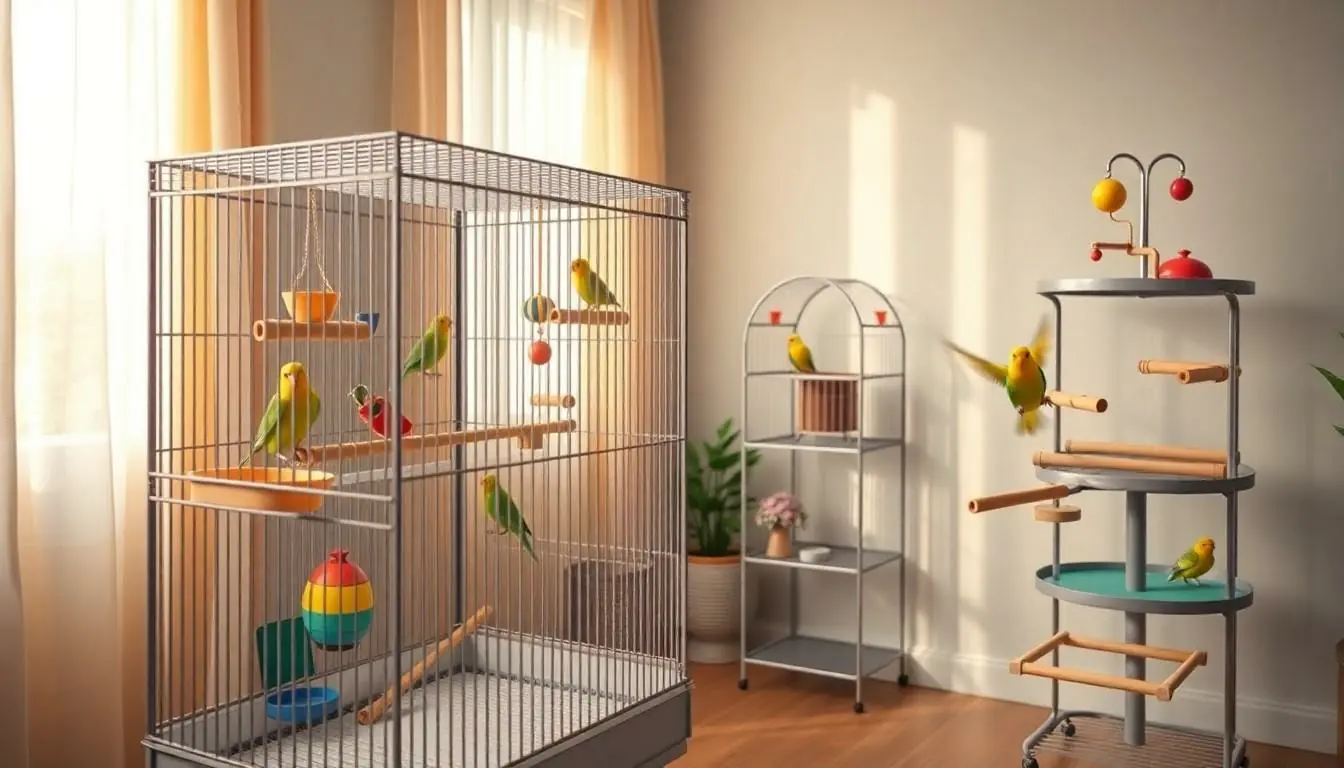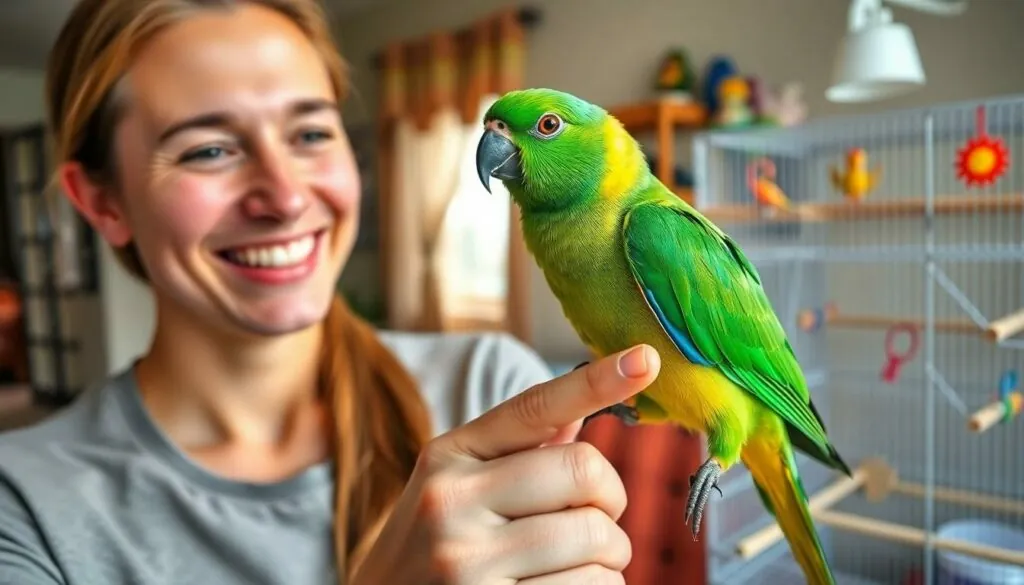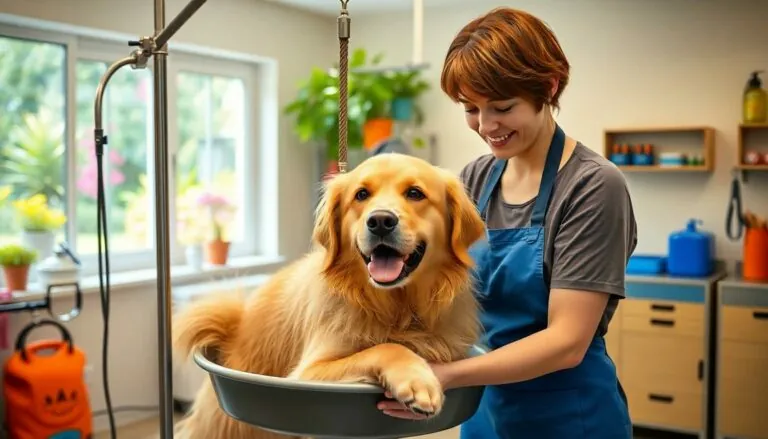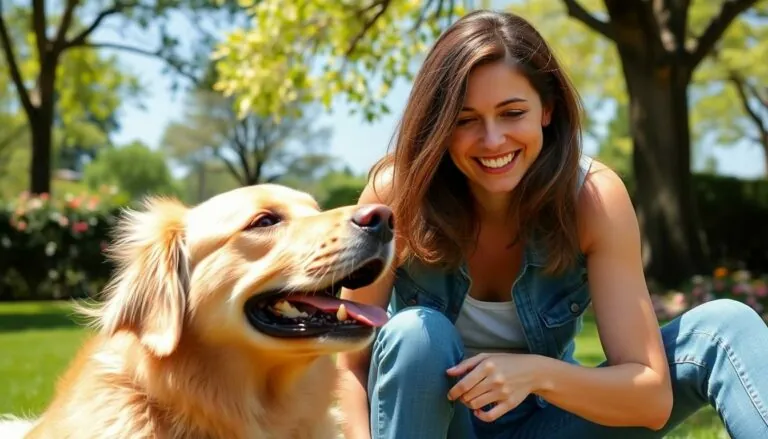Table of Contents
ToggleBringing a pet bird into your home can be a delightful decision, but it’s not just about the chirpy melodies and colorful feathers. These feathery companions have their own unique needs and personalities that require attention. If you think owning a bird is all about teaching it to talk or watching it swing on a perch, think again! It’s a full-time job that comes with its own set of challenges and rewards.
Understanding Your Pet Bird
Understanding a pet bird involves recognizing its specific needs, personality traits, and social behavior. This knowledge enhances both the bird’s quality of life and the owner’s experience.
Types of Pet Birds
Common types of pet birds include parrots, canaries, finches, and cockatiels. Parrots, known for their intelligence and vocal abilities, thrive on interaction. Canaries are appreciated for their singing talent and vivid colors. Finches, small and active, prefer social settings and require companionship. Cockatiels exhibit playful behaviors and can form strong bonds with owners. Each species has unique care requirements and varying life spans.
Behavioral Traits
Understanding behavioral traits helps in building a strong bond with a pet bird. Birds often display social characteristics and enjoy interaction with humans. They may engage in vocalizations or mimic sounds, showcasing their ability to communicate. Aggression might arise from fear or territorial instincts, indicating the need for a calm environment. Playful behaviors can reflect natural instincts, such as chewing or exploring. Providing mental stimulation through toys and socialization reduces boredom and promotes happiness.
Setting Up the Perfect Environment

Creating an ideal environment for a pet bird enhances its well-being and encourages positive behavior. Consider the following essential factors for setting up its living space.
Cage Requirements
Birdcages must provide ample space for movement and activity. The cage width should be at least two times the wingspan of the bird. Vertical space is equally important, as birds enjoy climbing, so a taller cage offers more play areas. Use non-toxic materials for the cage, including stainless steel or powder-coated metal. Proper ventilation contributes to good air circulation. Ensure the cage has sturdy perches, food and water dishes, and safe toys to stimulate mental engagement. Regular cleaning maintains a hygienic space that promotes health.
Safe Spaces for Exploration
Safe areas outside the cage are vital for a bird’s physical and mental health. Designate bird-proofed spaces where they can safely explore. Remove potential hazards, including toxic plants and small choking items. Use playstands equipped with perches and toys for added stimulation. Consistent supervision during exploration fosters a trusting relationship between the bird and its owner. Redirect unwanted behavior by providing distractions such as foraging opportunities. These spaces enhance exercise and enrich the bird’s overall quality of life.
Nutrition and Diet
Providing proper nutrition ensures a pet bird’s health and well-being. It’s essential to understand dietary needs based on species and age.
Essential Foods for Pet Birds
Seed diets alone don’t offer complete nutrition. High-quality pellets formulated for specific species serve as a primary food source. Fresh fruits and vegetables contribute essential vitamins and minerals. Leafy greens like kale and spinach support optimal health. Treats such as nuts should accompany their diet but in moderation. Additionally, grains and legumes offer protein and fiber. Mixing a variety of these foods promotes a balanced diet that satisfies a pet bird’s nutritional requirements. Pet owners must introduce new foods gradually to avoid digestive issues.
Foods to Avoid
Some foods pose serious health risks to pet birds. Avocado contains a toxin that can be fatal if ingested. Chocolate leads to severe complications, including heart issues. Onions and garlic may cause digestive distress and anemia. Caffeine from coffee and tea also carries dangers, leading to increased heart rates. Salty and sugary snacks lack nutritional value and may lead to obesity. Moldy or spoiled foods may introduce harmful bacteria, causing serious illness. Awareness of these dangers contributes to a safer dietary environment.
Health Care Essentials
Taking care of a pet bird involves regular health maintenance and awareness of common health issues. Health care ensures your bird thrives in a happy, nurturing environment.
Regular Check-ups
Routine veterinary check-ups serve as a cornerstone for bird health. These visits help detect early signs of illness before symptoms escalate. A veterinarian specializing in avian care can provide comprehensive examinations, vaccinations, and advice tailored to the bird’s species. Establishing a schedule for regular visits fosters a proactive approach to health management. Recommendations suggest check-ups at least once a year for healthy birds, with more frequent visits for older or ailing birds. Observing weight, feather quality, and behavior at home can also give insights into your bird’s health status.
Common Health Issues
Several health issues are prevalent among pet birds. Feather plucking represents a behavioral concern often linked to stress or boredom. Additionally, respiratory infections may arise due to exposure to drafts or poor ventilation. Non-toxic environments support good respiratory health, emphasizing proper living conditions. Other common conditions include bacterial infections, tumors, and gastrointestinal illnesses, all of which require prompt attention from a qualified veterinarian. Recognizing signs like lethargy, changes in appetite, or abnormal droppings indicates a need for further evaluation. Awareness and early intervention lead to better outcomes for pet birds.
Social Interaction and Mental Stimulation
Social interaction keeps a pet bird happy and healthy. Birds thrive on companionship and engagement, requiring daily interaction with their owners.
Bonding with Your Bird
Establishing a bond enhances trust between the bird and its owner. Sit near the bird’s cage to help it feel comfortable. Use gentle talking to create a peaceful atmosphere. Handsome treats can reinforce positive behavior during interactions. Gradually allow the bird out of its cage for supervised exploration. Encourage bonding through gentle handling and petting, focusing on areas the bird enjoys. Regular interaction leads to more affectionate behavior and enhances the overall relationship.
Toys and Activities
Toys offer crucial mental stimulation for birds. Select a variety of toys, such as swings, puzzles, and chewables, to prevent boredom. Rotate the toys frequently to maintain the bird’s interest. Encourage active playtime by hanging toys at different heights. Interactive toys stimulate problem-solving skills, promoting cognitive development. Incorporate activities like foraging games to mimic natural behaviors. Providing ample opportunities for play and exploration contributes to the bird’s emotional and physical health.
Caring for a pet bird requires dedication and understanding. By providing the right environment proper nutrition and regular health check-ups owners can significantly enhance their bird’s quality of life. Engaging in daily interactions and offering mental stimulation through toys and activities fosters a strong bond between the bird and its owner.
Recognizing the unique needs of each bird species is essential for promoting happiness and well-being. With commitment and knowledge bird owners can enjoy the rewarding experience of having a feathered friend that thrives in a loving and supportive environment.






